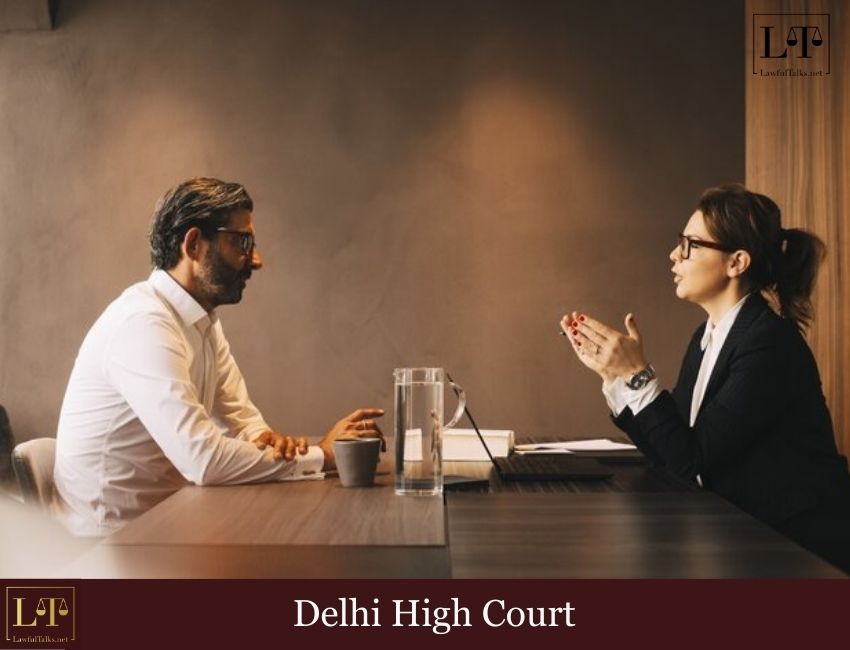Allahabad HC Sets Aside Afzal Ansari's Conviction, Allows Him to Continue as MP

The Delhi High Court has reiterated a fundamental principle governing the role of advocates: while lawyers must act on the instructions of their clients, they are not obligated to independently verify the truthfulness of those instructions. Determining whether the assertions made in court are true or false is ultimately the role of the judiciary, not the lawyers.

Background of the case:
The case arose from a complaint lodged by Chand Mehra against three practicing advocates in connection with a cheque-bouncing matter under Section 138 of the Negotiable Instruments Act, 1881. Mehra alleged that the lawyers representing the opposite party ought to have verified the facts of their client’s case before presenting them in court.
The Bar Council of Delhi (BCD) dismissed his complaint on 6 October 2023, holding that Mehra had failed to establish any professional relationship with the lawyers concerned.
The BCD further clarified that it was not the advocates’ duty to ascertain the veracity of their client’s case; that responsibility lay with the court hearing the matter. Consequently, no case of professional misconduct was made out.
Dissatisfied, Mehra filed a revision petition before the Bar Council of India (BCI) under Section 48A of the Advocates Act, 1961. The BCI, in its order dated 11 November 2024, upheld the BCD’s view.
It emphasized that under the Bar Council of India Rules, an advocate is required to act on client instructions, not to investigate the truth of the claims before representing them.
The BCI also noted that there was no fiduciary lawyer-client relationship between Mehra and the advocates, and therefore, no question of misconduct arose. The decision also drew support from the Madras High Court’s ruling in R. Swaminathan v. Bar Council of Tamil Nadu (2014).
Proceedings Before the High Court
Mehra challenged these findings before a Single Judge of the Delhi High Court, contending that the advocates had breached Rule 4, Section I, Chapter I, Part VI of the BCI Rules, which cautions lawyers against being mere mouthpieces of their clients. The Single Judge, however, dismissed his petition on 15 April 2025.
The Court observed that the rule did not imply a duty on lawyers to pre-verify the genuineness of a client’s case. It further noted that the allegations against the advocates did not fall within the definition of “professional misconduct” under Section 35 of the Advocates Act, 1961.
The Judge also clarified that issues of alleged fabrication or perjury were already the subject of separate proceedings initiated under Section 340 of the CrPC and were pending adjudication before the competent court.
Division Bench’s Findings
On appeal, a division Bench comprising Chief Justice Devendra Kumar Upadhyaya and Justice Tushar Rao Gedela agreed with the reasoning of the Single Judge.
The Bench categorically held that:
-
An advocate is bound by client instructions, but not obliged to verify their truthfulness.
-
Assertions made in court filings are to be adjudicated by the concerned court, not by the advocates representing the parties.
-
Entertaining complaints of the nature filed by the appellant would undermine the very duties advocates owe to their clients.
Accordingly, the Letters Patent Appeal was dismissed on 21 August 2025, with the Court finding no irregularity or illegality in the earlier orders of the BCD, BCI, or the Single Judge.
Case Title: Chand Mehra v. Union of India & Ors. (LPA 431/2025)
Leave a Comment

Het Dedhia
3rd Year Law Student from SVKM's Pravin Gandhi College of Law
Latest Posts
Categories
- International News 19 Posts
- Supreme Court 323 Posts
- High Courts 337 Posts


































































































































































































































































































































































































































































































































































































































































































